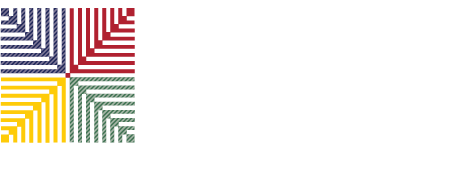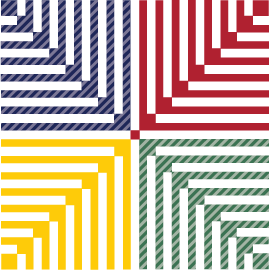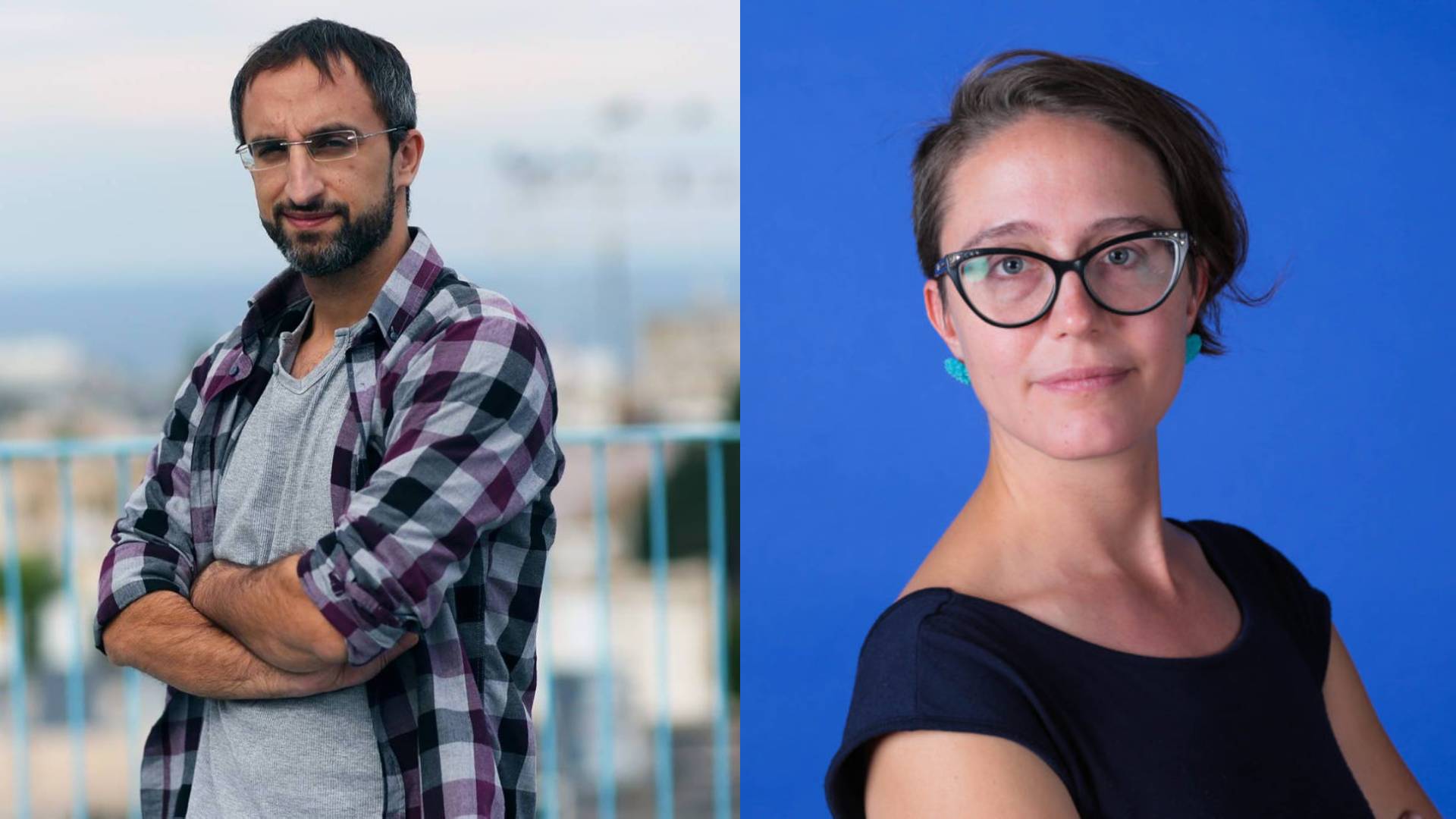In 2015, American Sarah Friedland read an article about the 1948 Nakba in the city of Lyd, Palestine. It so moved her that she decided to research the city in more depth.
Through a mutual friend she heard about the Palestinian journalist Rami Younis. Being from Lyd and interested in filmmaking, Rami agreed to meet her when she reached out and the two hit it off. They decided to make a film about Lyd and its fascinating story. After 8 years of production, it finally premiered at Jordan’s Amman Film Festival in August of 2023.
As Younis and Friedland were building the structure of the film, they realized they were drawn to multiple genres and visual formats, including science fiction and animation, to help them tell the current and alternate realities of Lyd.
The animated scenes in the film depict a reality in which the occupation of 1948 never happened. The rest of the film is archival and current documentary footage. The result is a complex film that is still accessible. It does full justice to Lyd’s evolution with a single narrative in three acts: pre-Nakba, the Nakba and its fallout, and the present.
BPFF email interviewed the filmmakers to learn more about the film and their process.
What inspired you to make a film about Lyd?
Rami: Lyd is not just my hometown, but is in many ways the story of Palestine. There aren’t enough films about Palestinian cities, so we decided to make Lyd the subject and the star of our film, and made her represent all of Palestine. It’s also interesting because, unlike other Palestinian cities, it was almost completely demolished.
Cities have souls. This is true of every city on earth. As we were researching Lyd, we found a lot of pain in its history – it used to be so important to Palestinians. Even before Palestine, Lyd was an ancient city with a glorious past.
Why did you decide to transition between an alternate reality and the current reality?
Rami Younis: The idea behind creating an alternate reality was to show how our lives could have been so much simpler, better, and more equal if it weren’t for Zionism and the racist, colonialist ideology.
In our alternate reality, Lyd is still Palestinian, and Jews, who fled from real antisemitism in Europe, live side by side with Arabs. To Palestinians, especially refugees and descendants from Lyd, seeing this place they dream about, but without the atrocities and massacres that happened, is liberating.
This film also demonstrates that imagination is a basic human right because one thing the occupation can never take from you is your ability to imagine.
Animation enabled us to create the universe we want, without constraints. For example, we wanted to put two refugees from Lyd back in their hometown, but the Israeli apartheid regime forbids them from entering historical Palestine. In the animation we could put them wherever they wanted to be. Also, animation offers a better visual distinction between the current and alternate realities.
Fortunately for us, we found the coolest animation studio called Samaka, based in Egypt. They understood us from the beginning.
Why use the science fiction genre for the animation? Were you influenced by any films?
Sarah: I am an avid sci-fi reader and very influenced by Ursula K. Le Guin, China Mieville, Octavia Butler, and many others. Specifically, the work of Eman Abdelhadi in the book Everything for Everyone has an amazing short chapter that imagines the liberation of Gaza.
Was having both a Palestinian and a Jew as writers/producers helpful for access to both communities?
Sarah: I think my positionality helped. The footage from the Nakba-era Palmach soldiers is archival. It was shot in 1989. We were able to acquire it from the Palmach Archive, one of the military archives in Israel. We just said we were making a film about what happened in Lydda in 1948 and they gave us the footage. Maybe there was an implicit understanding that since I am Jewish the film would be made from their perspective. Or maybe they just didn’t care; we will never know.
This was shot pre-Oct 7, 2023 but people will be thinking about it. No themes in the film are outdated.
Sarah: We also feel that the film speaks to the current moment because it shows that the occupation of Palestine has been happening since before 1948, and that all that history lead to the attacks on Oct. 7th and the current genocide in Gaza. Many of the things that we talk about in the film that happened during the Nakba in Lyd are still happening in Gaza. We hope that the film offers a glimpse of hope through the alternate reality sequences.
Rami: I think that the genocide of the Palestinian people in Gaza is making our film more relevant than ever. People want to learn the background of what is happening, and our film does just that.
What advice would you give other filmmakers who want to make a film about Palestine?
Rami: Keep going. Speak out if your countries’ leaders support the occupation. Artists have a responsibility to shed light on injustices so that people start asking the right questions.
The Palestinian cause, in many countries, is no longer perceived as a foreign issue but a domestic one. It is about doing what’s right and siding with humanity.
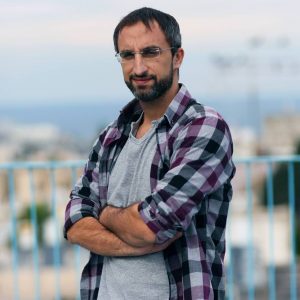

Rami Younis, co-director of Lyd
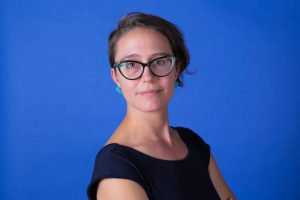

Sarah Friedland, co-director of Lyd
